Day 170 (Tajkistan): Veshab (lots of new impressions)
I should have headed back to Ayni today, but decided to stay for another day to get a better impression about Veshab, spend a bit more time here to talk to people and have a look around. It ’s not simple to summarize the impressions I had during the day. Where to start and where to end?
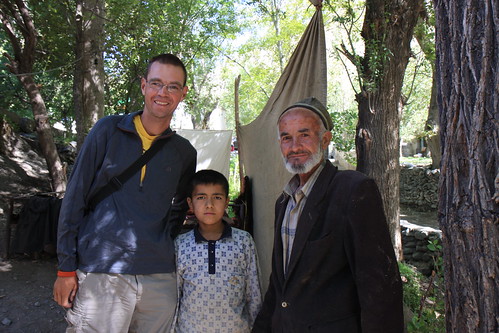
Poverty happens on so many levels and different from what we conceive it to be so often. There are no kids that are ravished by hunger to be seen here. But it is the kind of poverty that is extremely substantive and which is very telling about the lack of all things essential.
We started the day with a visit to the local hospital. But I wanted to speak with a doctor and not just look at a hospital. So we talked for a good long while. There isn’t much there. The doctor reports that in the winter time it is hard to maintain even basic services as it is simply too cold at -25C and there is no real heating happening. And she treats almost 20 people per day - including roughly 60 births per year. Which struck me as a lot of kids for a town the size of Veshab. It also points to part of the problem. Overpopulation - combined with rather scarce fertile ground, which explains a lot about the projects that German Agro Action is running here. They are apparently simple projects, but again they are telling: projects that involve courses about preservation of fruit - something that may have been known before, but many of the fruits spoiled because people didn’t know how to do this properly.Another project includes the usage of crops without fertilizer as well as making better crops available that are then shared with others in and outside the village. I talked to one villager who said that he was initially skeptical when he heard about it and was uncertain about the claims being made in the mandatory training that was carried out beforehand. He now says that his fields yield 300% more crops.
In the afternoon, I headed out to take a closer look at the water pipeline. The person responsible for it came long and explained that the villagers are seeing a major difference in their everyday lives and that their health has tremendously improved. And that other villages are thinking about building the same system. It is not free of course and with the (very low) payment they are able to do the maintenance work that is necessary. It’s a very basic construction, but has tremendously improved the life of people here. And for me, this picture almost says it all.
The same person is also a teacher and told me about his extremely low salary, he makes $60 / month. This is a high salary for a teacher and younger teachers make a lot less. Somewhere around $20 / month. They also have to pay a substantial amount for their university education and have no chance of living off of their salary. Which means that they either have to work additional jobs or, as is increasingly the case, there are no longer people willing to do the job. It just isn’t worth it. Something I can very well understand. And there really is no solution for that problem.
At the end of the day we sat down at the village square - and more of the problems became apparent. The complete lack of electricity for 7 months of the year is a major issue. This is not limited to Veshab, but is a countrywide problem. The villages don’t get electricity for the majority of the year. And in the long hard winters this is a major issue. People run generators to power their basic needs. But that is not a way any of us would really want to live and is only a meager solution. The other pressing problems were additional water resources for irrigating plots of land on the other side of the river, protection from landslides and educational issues.

The visit was in a lot of ways an eye-opening experience for me. And I am glad I came. People came to me without demanding anything. They looked for understanding of the situation, for why they are thinking about leaving to Russia to work there and send money back. This creates its own problems of course. The men leave to make money, leaving the families - i.e. mothers and children - to do all the work at home. Apart from the social problems, it creates downward pressure to fulfill the role that the father then leaves behind. It is not a pretty situation at all when countrywide more than 30% of the adult men are no longer here. This is made even worse in a country which is strongly patriarchic.
For me, the projects carried out here in Veshab never struck me as excessive - all of them were carried out in a way that made a lot of sense to me. They were sustainable without involving a massive amount of outside interference. And I didn’t mention all of them here. But I am convinced that the money spent here is well-spent. So, again, please consider donating.
Some of you have asked me for my Paypal information as international transactions are still a bit of a hassle. I will respond to this individually - and forward the money to the account of German Agro Action in Germany.

 Deutsche Version
Deutsche Version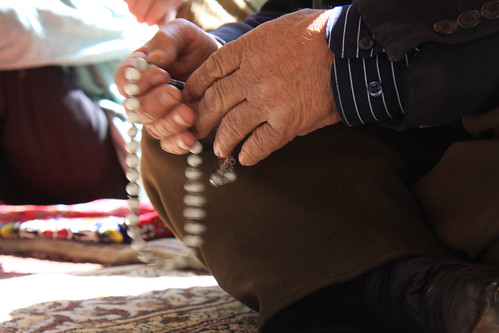
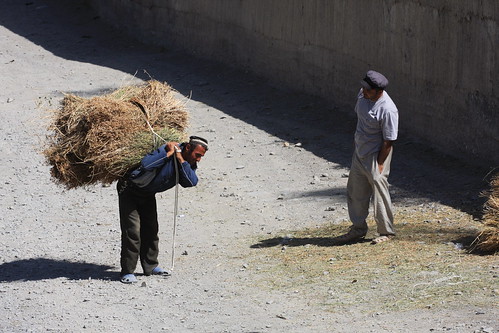

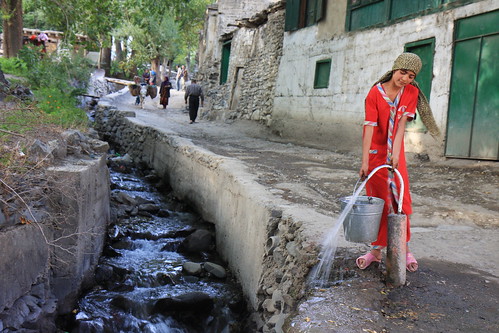
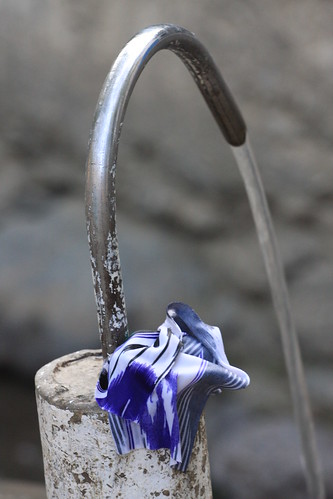






0 comments
Kick things off by filling out the form below.
Leave a Comment